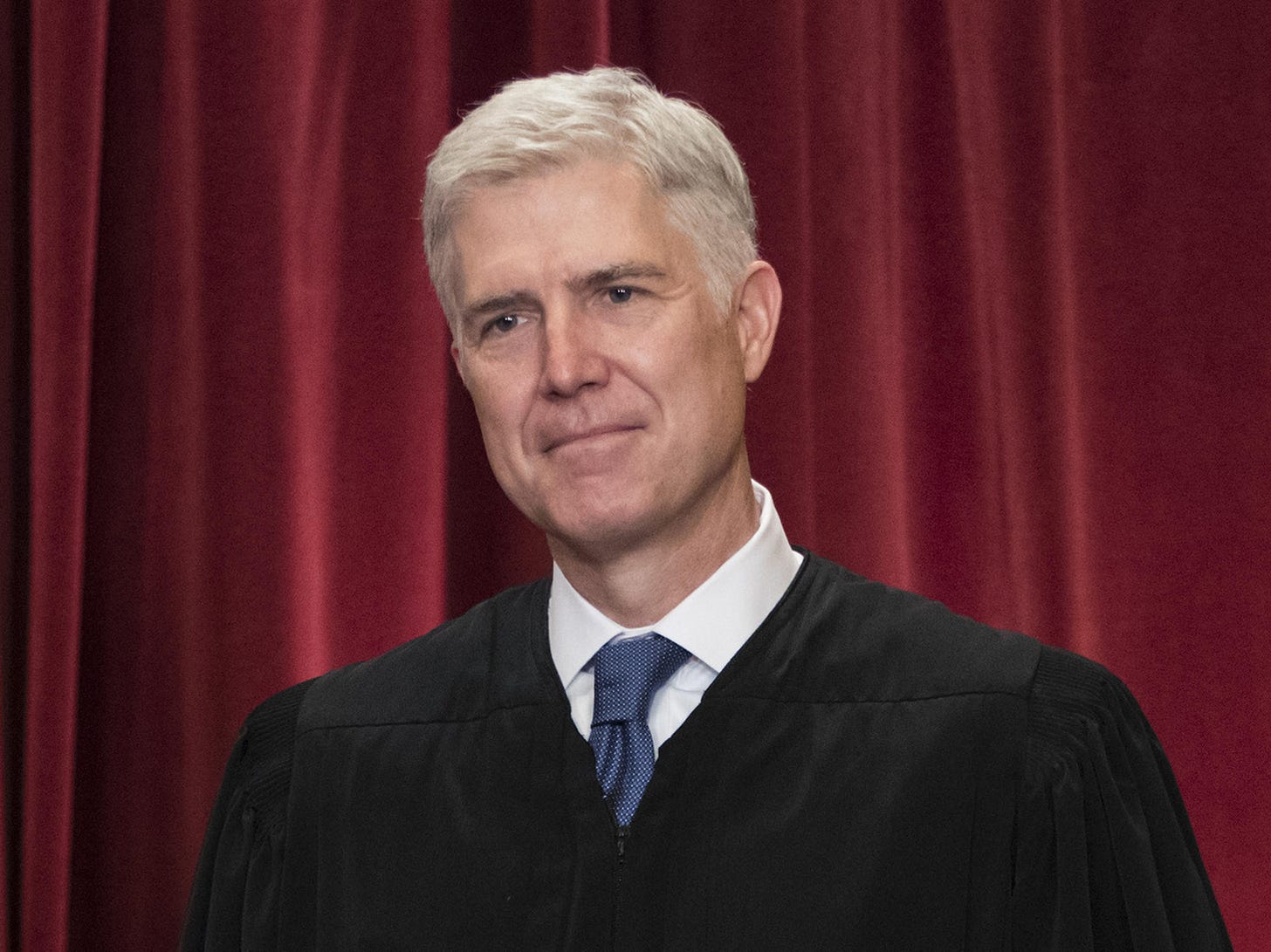Supreme Court Justice Neil Gorsuch on the Biomedical Security State
Thank goodness, a public official who understands that emergency decrees from executives and their subordinates cannot be allowed to destroy our constitutional order.
In a statement made yesterday on a Title 42 case before the Supreme Court, Justice Neil Gorsuch had the following to say about the proliferation of unconstitutional emergency decrees by executives and their unelected appointees during covid:
[T]he history of this case illustrates the disruption we have experienced over the last three years in how our laws are made and our freedoms observed.
Since March 2020, we may have experienced the greatest intrusions on civil liberties in the peacetime history of this country. Executive officials across the country issued emergency decrees on a breathtaking scale. Governors and local leaders imposed lockdown orders forcing people to remain in their homes.
They shuttered businesses and schools public and private. They closed churches even as they allowed casinos and other favored businesses to carry on. They threatened violators not just with civil penalties but with criminal sanctions too.
They surveilled church parking lots, recorded license plates, and issued notices warning that attendance at even outdoor services satisfying all state social-distancing and hygiene requirements could amount to criminal conduct. They divided cities and neighborhoods into color-coded zones, forced individuals to fight for their freedoms in court on emergency timetables, and then changed their color-coded schemes when defeat in court seemed imminent.
It was not just state governors and their subordinates, but federal officials with no lawmaking authority under the Constitution who abused their emergency powers over the last three years. Recall that the executive branch enforces the laws, it does not make the laws, as we all learned in high school civics class, as Gorsuch reminds us:
Federal executive officials entered the act too. Not just with emergency immigration decrees. They deployed a public-health agency to regulate landlord-tenant relations nationwide [a reference to the CDC’s eviction moratorium, struck down by the Supreme Court]. They used a workplace-safety agency [OHSA] to issue a vaccination mandate for most working Americans [which the Supreme Court also struck down].
They threatened to fire noncompliant employees, and warned that service members who refused to vaccinate might face dishonorable discharge and confinement. Along the way, it seems federal officials may have pressured social-media companies to suppress information about pandemic policies with which they disagreed [a reference to findings in our Missouri v. Biden case].
Gorsuch next reminds us of the constitutional principle of separation of powers. He then chastises both the state legislatures, Congress, and the courts, for dereliction of duty as they allowed executives and their appointees to run amok:
While executive officials issued new emergency decrees at a furious pace, state legislatures and Congress—the bodies normally responsible for adopting our laws—too often fell silent. Courts bound to protect our liberties addressed a few—but hardly all—of the intrusions upon them. In some cases, like this one, courts even allowed themselves to be used to perpetuate emergency public-health decrees for collateral purposes, itself a form of emergency-lawmaking-by-litigation.
In chapter four of The New Abnormal, I write of the need for judicial or legislative checks balances on the power of executives to unilaterally declare a state of emergency. I expanded on these policies proposals in the recently released Mandate for Leadership 2025, which I wrote about last week. Must we have an available legal mechanism to declare states of emergency? Perhaps. Nature being what it is, we occasionally face disasters: floods, earthquakes, pestilence, and yes, epidemics will come and go periodically. These will typically be localized and time-limited affairs. They may sometimes require the authorities, usually at the local or regional level, to declare a temporary state of emergency. But we cannot allow ongoing “emergencies” to define the new normal. The state of exception needs to remain extremely exceptional.
Keep reading with a 7-day free trial
Subscribe to Human Flourishing to keep reading this post and get 7 days of free access to the full post archives.




